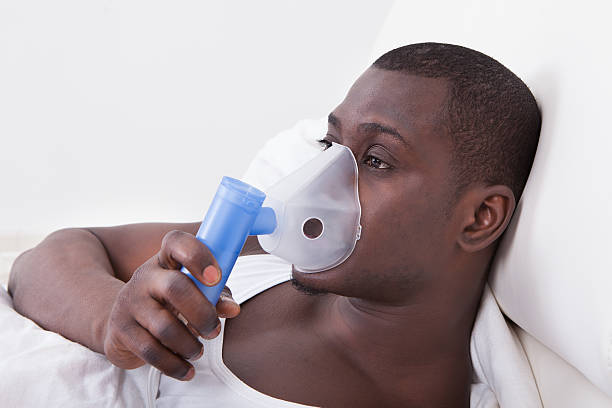Acute Respiratory Infection (ARI) is a serious infection that affects your respiratory system, including your lungs and airways. It can come on suddenly and spread quickly, especially in crowded environments. Understanding the causes and symptoms of Acute Respiratory Infection is essential for recognizing the condition early and seeking timely medical help.
We will explain what causes Acute Respiratory Infection, its symptoms, and how to get the right treatment. If you experience any of the symptoms of ARI, seek help from qualified medical professionals via the Virtual Doctors App or download the Virtual Doctors Healthplus App on Google Play to book an appointment.
What Causes Acute Respiratory Infection?
Acute Respiratory Infections are primarily caused by viruses and bacteria that enter the respiratory system through the nose or mouth. The most common causes of ARI include:
- Viruses: The majority of ARIs are viral, with the common cold, influenza, and respiratory syncytial virus (RSV) being frequent culprits. These viruses can easily spread from person to person through airborne droplets when someone coughs or sneezes.
- Bacteria: Bacterial infections, such as pneumonia, can also lead to ARI. Streptococcus pneumoniae is a common bacterial cause of respiratory infections.
- Other Factors: Weak immune systems, exposure to pollutants, smoking, and crowded living conditions increase the risk of developing ARI. Infants, the elderly, and those with chronic illnesses like asthma or diabetes are more susceptible to severe forms of ARI.
What Are the Symptoms of Acute Respiratory Infection?
The symptoms of Acute Respiratory Infection can vary depending on the severity of the infection and whether it affects the upper or lower respiratory system.
Common Symptoms Include:
- Cough A persistent, sometimes painful cough is one of the earliest symptoms of ARI. The cough may be dry, or it may produce phlegm or mucus. In severe cases, the cough may be accompanied by blood.
- Fever You may experience a sudden onset of fever, which can be mild or high. A high fever is often an indication that the infection is spreading and your body is fighting it off.
- Sore Throat A sore, scratchy throat is common in ARI. You may also feel pain when swallowing, which can make eating and drinking uncomfortable.
- Runny or Stuffy Nose Congestion and a runny nose are frequent symptoms, especially if the infection is in the upper respiratory system (nose and throat). Nasal congestion may be accompanied by sneezing.
- Difficulty Breathing As ARI affects the airways, breathing can become more difficult. You might experience shortness of breath, wheezing, or feel tightness in your chest, especially if the infection reaches the lungs.
- Fatigue Due to your body fighting off the infection, you may feel unusually tired or weak. Fatigue can persist even after other symptoms improve.
- Chest Pain In some cases, ARI can cause chest discomfort or pain, particularly during deep breathing or coughing. This symptom may indicate a more serious infection, such as pneumonia.
- Headache and Body Aches Headaches, along with general body aches and pains, often accompany ARI, particularly when the infection is viral, such as in the case of the flu.
SYMPTOMS OF ACUTE RESPIRATORY INFECTION: When to Seek Medical Help?
If you or someone you know is experiencing any of these symptoms, especially difficulty breathing, high fever, or persistent cough, it’s crucial to seek medical help immediately. Acute Respiratory Infections can escalate quickly, leading to serious complications like pneumonia, bronchitis, or even respiratory failure if left untreated.
Getting the right medical care as soon as possible is important for reducing the risk of complications. For professional medical advice and treatment, consult with a qualified doctor on the Virtual Doctors App or download the Virtual Doctors Healthplus App on Google Play to schedule an appointment.
How Is Acute Respiratory Infection Diagnosed?
Doctors usually diagnose ARI by reviewing your symptoms and conducting a physical examination. In some cases, additional tests such as chest X-rays, throat swabs, or blood tests may be required to determine the type of infection and whether it’s caused by a virus or bacteria.
How to Treat Acute Respiratory Infection
Treatment for ARI depends on the cause and severity of the infection:
- Viral Infections: Since antibiotics do not work against viruses, treatment typically focuses on relieving symptoms. Doctors may recommend rest, fluids, and over-the-counter medications to reduce fever and congestion.
- Bacterial Infections: If ARI is caused by bacteria, doctors may prescribe antibiotics to fight the infection. It’s important to complete the full course of antibiotics to avoid the risk of antibiotic resistance.
- Breathing Support: In severe cases where ARI affects the lungs or causes difficulty breathing, oxygen therapy or other breathing treatments may be necessary.
Preventing Acute Respiratory Infection
Preventing ARI involves simple hygiene practices and lifestyle changes. Here are some ways to reduce your risk:
- Wash your hands frequently with soap and water.
- Avoid close contact with sick individuals.
- Wear a mask in crowded or enclosed places, especially during flu season.
- Stay up-to-date on vaccines like the flu vaccine and pneumococcal vaccine.
- Quit smoking, as it weakens your lungs and makes you more susceptible to infections.
Acute Respiratory Infection can be serious, but with prompt treatment, most people recover fully. Recognizing the symptoms early and getting proper medical care is key to preventing complications. If you are concerned about your health, don’t hesitate to consult a doctor.
Book an appointment with a qualified medical professional on the Virtual Doctors App or download the Virtual Doctors Healthplus App on Google Play for easy access to healthcare from the comfort of your home.
